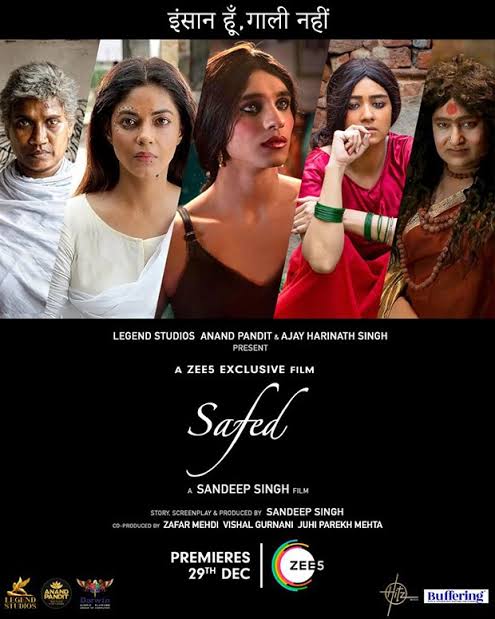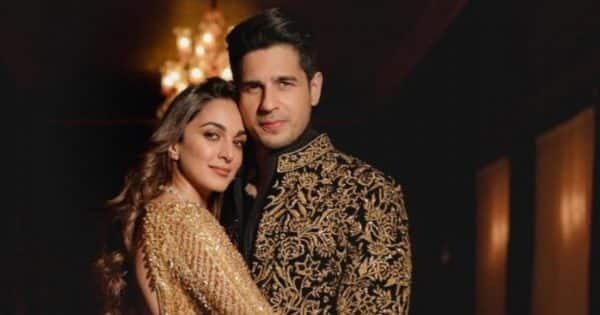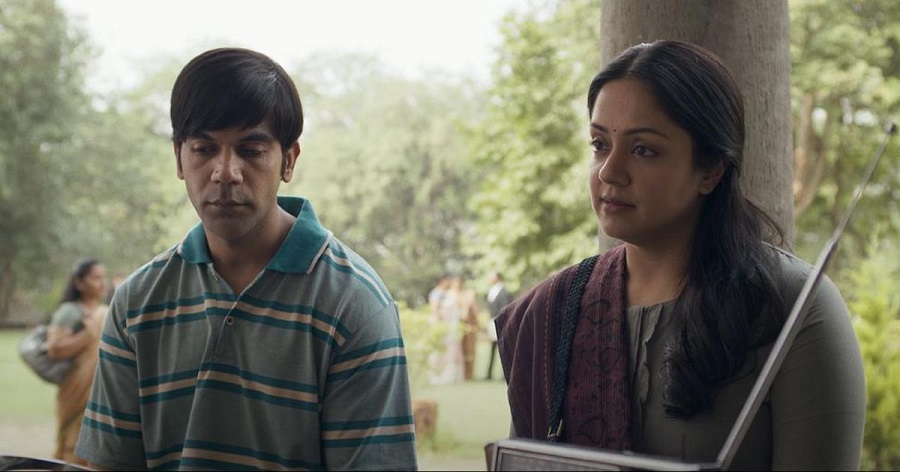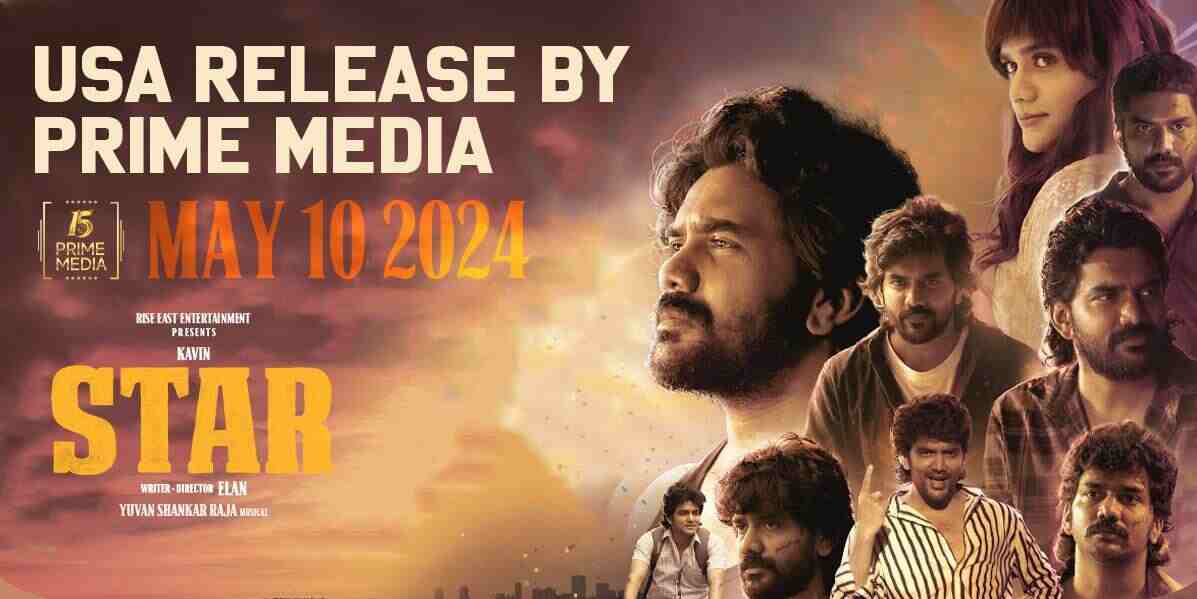A noble plot but producer Sandeep Singh’s maiden directorial impresses only in parts. Though sincere, even Meera Chopra could have wished for more depth to her character than just despair.
Rating: ⭐️⭐️💫 (2.5 / 5)

By Mayur Lookhar
We are called to clap at your weddings, but the same people would abuse us on the streets. Not quite verbatim, but Guruma [Jameel Khan], the head of the eunuchs in the particular Varanasi ghat, laments the hypocrisy of the ‘straight’ society. Rejected by the gods, ashamed by society, many like-Guruma banking on tuches for livelihood. Section 377 (of Indian Penal Code) may be gone, but respect is still hard to earn for LGBTIQ community. More so for the Transgenders, who are disparagingly called hijra, chakka, gud in the Indian society.
Producer Sandeep Singh’s long cherished story has turned into a reality with Safed [2023], a bizarre love story between a widow and a trans in Varanasi. Said to be based on a true story, Singh’s maiden directorial is set in the 90s. Kaali [Meera Chopra], a young widow has submerged herself in the Ganges when she finds a young man sinking in the waters. We’re still in a bind as to who saved who? Was the woman there to meet her maker at the bottom of the river when she witnessed this young man drowning? Though there’s no words of gratitude, but an instant bond is formed here. The woman though is unaware that this young man Chaand [Abhay Verma] is actually a trans.
First-time director Sandeep Singh had this story idea since 2006. It’s natural for the complex story to take this long to materialize. Only a brave producer would pass it. The advent of OTT has opened a window for such stories. Barely about 60-70 minutes, It would qualify under a short. Safed though doesn’t feel like a short. It falls short of CBFC’s [Central Board of Film Certification] mandatory 72 minutes requirement for a feature film. The plotline had potential to be made into a full-length feature. The trouble here is that Singh largely focusses on the despair of his two principal characters. Jeez, it’s a film, a writer-director is entitled to play around with the characters, create adequate drama/fiction to convince the audience about such a bizarre story.
Whilst Chaand is instantly smitten by Kaali, Singh needed more time, more scenes to let this friendship blossom organically. There are barely any conversations, and soon the duo enter a room on Holi day. The woman does drop her pallu, the trans boy is nervous yet excited, but next moment, she opens the door. Did she sense the truth? No, that comes later. Is this a platonic relationship?Honestly, there is just not enough scenes for us to comprehend this relationship. They share few cordial moments, and it isn’t too long before the truth emerges. Kaali, who earlier revealed that she is scared of kinnars [eunuchs], is left stunned by the sight of Chaand turning out to be a Chaandi. Living in a widow’s ashram is miserable, but this is some setback. Is there any scope for a reunion?
Though a fine story, the underbaked characters/screenplay leaves a viewer frustrated. Even before the first scene, Safed is guilty of literally revealing the entire tale first in its trailer, and then the opening credits that play out to gorgeous stills/sketches. As beautiful as these images are, but there’s not much left for imagination later. This early revelation is detrimental to a 70-minute short film.
Singh is guilty of stretching the despair here. The opening scene has Chaandi with blood on her forehead, and mucous sticking over her face. Not a pretty sight to begin with, but acceptable under the preceding grim situation. However, the running nose runs one scene too many. Unsurprisingly, it evoked a ‘sheee’ from couple of senior female journalists, who were seated close to the screen. A promising plot is slightly wasted under the cloud of despair facing its two protagonists. Whilst it is only human to grieve, poor Meera Chopra largely cuts a despondent figure here. Chopra convinces us in her grieving, but there’s nothing much to Kaali. Aren’t women supposed to go bald, and keep their hair short in a widow orphanage? Maybe a Kaali had a choice but was it acceptable in the period (90s) where the film is set?
For a widow, we perhaps spotted a light lipstick shade when Kaali leaves after the first meet with Chaand. There is the odd lip sync blip when Meera mentions the word ‘Ishwar (god) in a line.

Chopra’s been an enigma in her career. It’s surprising that after a career-defining performance in Section 375 [2019], Chopra still hasn’t got the opportunities that she deserves. There is no sibling revelry, but due respect to Priyanka, Parineeti, Mannara, it is Meera who is the most gifted actor among the Chopra cousins.

As bad as Kaali’s plight is, but it sure can’t be worse than the Chaandis of the world. Abandoned by biological parents, forced to beg, some confined to sex for living. Like its inconsistent screenplay, Abhay Verma’s performance too ebbs and flows. Very few ‘straight’ beings can claim to know about the transgender community. For a simpleton like yours truly, these beings were often defined by age old stereotypes. We are in no position to judge them. One though is curious as to how a trans man, who earlier had a strong effeminate body language, tone, transform himself totally whenever he is around Kaali. We leave this aspect to the trans community.
We always respect women whenever they play a trans character. It takes brave women like Sushmita Sen, and now Barkha Bisht to risk their gorgeous images in order to look like a trans. The Radha [Bisht] and Chaandi equation is one filled with mockery, envy but also care. An in-your-face raging/ mocking Radha will perhaps disturb some, but Bisht makes a sincere effort to get into the skin of her character. Thankfully, director Singh lets Bisht speak in a more natural tone.
With her short hair, cold expressions, Chhaya Kadam looks the most convincing of the widows in the Varanasi ashram. Meanwhile, Jameel Khan has applied too much ‘safed’ [powder] on his face.
Safed is essentially about the widow and the trans friendship. Not much happened between them to call it love. The excessive grieving deprives Meera and Verma of expressing themselves in their respective challenging roles. What infuses life into this bizarre tale is the breathtaking cinematography and production design. Anirban Chatterjee weaves his magic via brilliant visual storytelling. With prior experience in Sanjay Leela Bhansali films, Chatterjee sure has learnt few things in visual arts from the acclaimed filmmaker. The sombre background score is not stretched which ensures that the viewer isn’t left with a heavy heart for long.
Safed, which translates to white, a colour of peace, but of lifetime mourning for women like Kaali. Sandeep Singh’s film has its heart in the right place. It poses some pertinent question to the society, exposing its hypocrisy, done largely in a decent tone. He’s wise to question a society that worships Shiva’s Ardhanarishvara [half male, half female] avtaar, but condemns the Chaandis as cursed beings. Though Safed, the Sandeep Singh directorial gives a grim insight into the dark world of the transgender community and the misery of the Varanasi/ rural widows. He is prudent in the way he chooses to close this Safed chapter, mindful of the ground reality than present any utopia.
Section 377 maybe gone, but it’s a long way for the Chaandis to gain acceptance in the society. Huh! Leave aside any hope for a kinnar-vidhwa [eunuch-widow] epic love story. That is the safed (white) truth.
Safed [2023] is streaming on Zee5.





![Nikki Tamboli dishes out Elsa-like vibes in a new bridal photoshoot; fans cannot get enough of her beauty [View Pics]](https://st1.bollywoodlife.com/wp-content/uploads/2023/02/Nikki-Tamboli-pics1-1-600x315.png)






